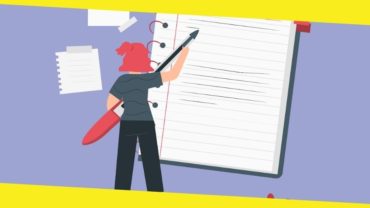Have You Got What It Takes to Become a Special Education Teacher?

Special education teachers work with students who require additional support in learning. They primarily assist students with hearing, physical, or visual impairments concerning their behavioral, emotional, or academic difficulties.
An integral part of the job of a special education teacher involves developing individualized plans. It also involves adapting the content of the curriculum, how to teach it, keeping a record of each child’s development, and producing evaluation reports. Depending on the student’s needs, the teacher will employ specific and special educational approaches.
What does it take to be a Special Education Teacher?
If you wish to become a special education teacher, remember that it is a challenging career path. Even if you have a great deal of teaching experience, you must meet the following criteria:
- Be friendly, pleasant, adaptive and optimistic
- Have the ability to motivate and encourage students
- Have the patience to cope with an emotionally and physically damaging job
- Have patience, touch and tolerance
- Know how to maintain proper discipline and ways to manage challenging behavior
- Possess good communication skills
- Possess a remarkable capacity for planning and organization
- Be disciplined
- Have enthusiasm and energy
- Have the ability to work well under extreme pressure
- Have the knowledge and ability to establish good relationships with children’s parents
- Have the required training or education in special education teaching
- Possess excellent teamwork skills with all other educators, social and health care professionals
- Have practical and creative skills to develop stimulating and appropriate activities and resources
How Difficult Is It To Be A Special Education Teacher?
Being a special education teacher can be challenging. In addition to teaching every child using customized techniques, these teachers must also fulfill non-instructional duties, such as attending meetings, administering tests, and handling additional paperwork.
They also often struggle with technical assistance and teaching inclusion. A special education teacher is often left out of the loop as they separately work with smaller groups.
Despite its challenges, this can be a rewarding career. With the right degree and training, you can develop practical skills and a mindset for dealing with special children and improving life quality.
What are The Special Education Program Specialties?
As a special education student, you can pursue specific courses to ensure your skills are properly developed and prepared for desired career paths.
Some programs allow designing a custom concentration using electives, while others offer formal concentrations. Alternatively, you can study visual impairment or autism spectrum disorders. There are also schools that focus on gifted and talented education.
Top 5 Characteristics of a Good Special Education Teacher
If you want to become a good teacher, you must be enthusiastic about situations where others may give up.
Identify your personality traits and compare them to the top five characteristics listed below to decide if teaching special education is the right career for you.
#1. Special Education Teachers are Good Humored
Do you have a well-tuned sense of humor? If yes, you can lighten your days while invigorating your special education teaching experience. However, despite dealing with disabled children, your students can tell when you are having fun.
#2. Be Accepting Of Your Students
By choosing this career, you have the chance to appreciate and love others regardless of their behavior or abilities. You know how to motivate students by showing them someone understands them, which develops their character.
#3. Special Education Teachers Are Intuitive
Your students may be awkward communicators due to injuries or auditory learning disabilities. Your job as a teacher is to engage with them, be on the lookout for their needs, and communicate effectively. Being intuitive will help you address the concerns they fail to tell you about.
#4. Be Dedicated To Your Students
Working with special education students for an extended period can give you a lot of confidence. Additionally, if a teacher is familiar with a student’s struggles and strengths, no one else can be more prepared to support them comprehensively.
#5. Be Thick-Skinned
Teaching special education can be highly frustrating at times. You have to deal with tantrums, emotional outbursts, lack of interest, and aggressive behavior. While the situation can be overwhelming, being thick-skinned will protect you from becoming exhausted quickly.
- Are you organized?
Every student needs structure to succeed, but it is especially critical for special education students. As their teacher, you must create a learning environment that accommodates students who are physically handicapped, or mentally challenged.
- Can you make your Teaching Methods Creative?
It is often the most effective attribute a special education teacher can possess to find new ways of explaining and demonstrating subject matter. In addition to enriching the classroom environment, promoting creativity in the classroom will provide benefits to your students.
- Are You Optimistic?
In special education, every victory counts, whether the accomplishment is long-awaited or simple. Because students with learning disabilities often struggle to complete simple tasks. It is the teachers’ responsibility to offer hope and support.
- Can you communicate effectively?
Violence and aggression are more prevalent in children with developmental disabilities. A lot of their frustration comes from their disability and challenging lifestyle. Sometimes, they demonstrate their frustration by acting aggressively towards themselves, like hitting themselves with objects or cutting their own skin. Special Education teachers must know which methods to reinforce at such moments and treat them in a calming, supportive manner.
The Bottom Line
Special education teachers serve as students’ advocates with special needs and disabilities. It is an honorable profession that demands open minds and mutual respect toward the philosophy of inclusion, strong administrative support, and adequate knowledge of meeting the students’ needs with disabilities. A career in special education is highly sought-after all over the world. In addition to the licensure or certification, the profession also requires soft skills like resilience and perseverance.
If you’re interested in the role, it is better to get proper training and education before pursuing the career. Taking part in graduate programs can help you reach your goals and support your students.
Recommended For You
IELTS Writing Tips General Pointers to Your Future Academic Success!
Most Inside
Most Inside offers high-quality recommendations and valuable updates to enhance all aspects of your life, providing premium guidance and enriching experiences.




